AI-writing services are the best thing after sliced bread. ChatGPT has stirred the ground in the education environment and added fuel to the love-hate relationship between students and professors. The learners were excited to witness a break-through revolution, while educators were anticipating to face new challenges. In reality, both were not ready for a fast-paced development of AI technology.

✅ AI Essay Writer ✅ AI Detector ✅ Plagchecker ✅ Paraphraser
✅ Summarizer ✅ Citation Generator
The AcademicHelp team was curious to discover more about the current situation in the academic field. We started investigating the latest cases. We were surprised to learn that a diligent student was falsely accused of using ChatGPT. So far this is not the first occasion when professors question the integrity of students. When educators run written assignments through AI detectors the chances of getting a correct assessment are slim. Many students are being flagged by detectors even though they do not use any AI-powered tools. In order to prove to the professors that there is no integrity violation, some students go the distance and check their essays on many AI-detectors. Sometimes, the results remain unsatisfactory. Despite checking the assignment through detection, many still have to prove that they did their homework without additional help.This is yet another confirmation that sometimes technology can do more harm than good.
While some students are trying to win the battle against machines and show their educators that they are capable of doing their assignments on their own, there are some who are actively using AI-writing services to facilitate their studies. Sure, some might get lucky with AI detection. But there are other learners who were caught red-handed. And neither their initiative to be innovative and progressive nor creative wit on how to outsmart the education system are not appreciated by both educators and AI-detectors.
With many stories filling the Internet, our experts decided to get to the core of the problem. The A*Help team asked AI-writing services and AI-detectors to help us understand the current situation. Their valuable expertise and comments helped us get a broader view. Both parties underscore that we are on the brink of a new revolution when rules are formed as we go.
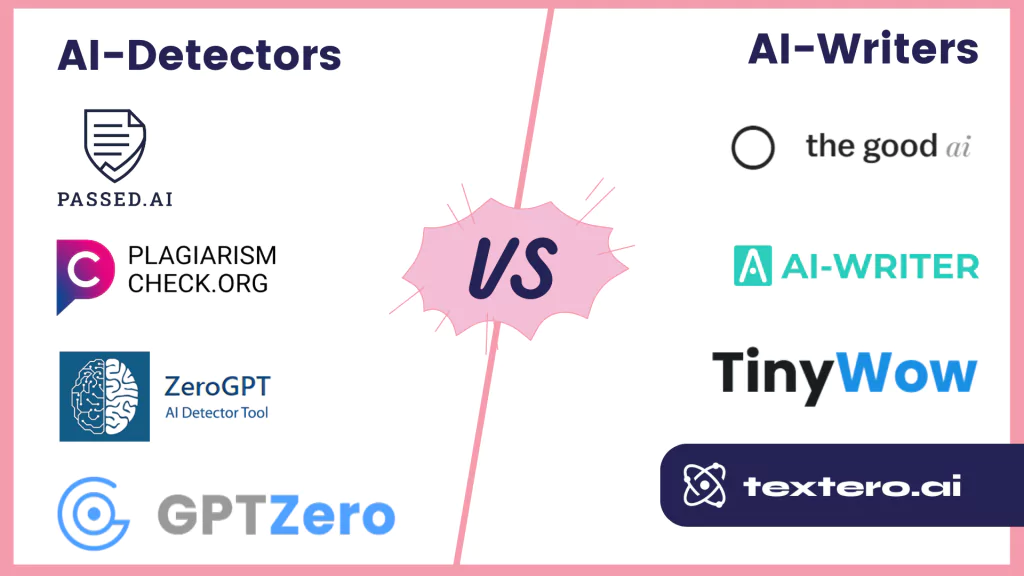
AI Restrictions: As Irrational as Calculator Bans
“There is no coming back to the good old days”, seems to be the ubiquitous statement of educational institutions. The majority of students who have access to technology are already using all well-known AI writing tools for various personal needs. With the help of cutting-edge technology, they can churn out essays, and written assignments, search for additional information to put in their reports, or even create presentations in split seconds. The numbers speak for themselves, around 52% of students have admitted to writing an essay in ChatGPT only.
Here is an observation from an AI-based writing assistant – AI-Writer:
“AI text generation is here to stay and the education system will have to adapt.”
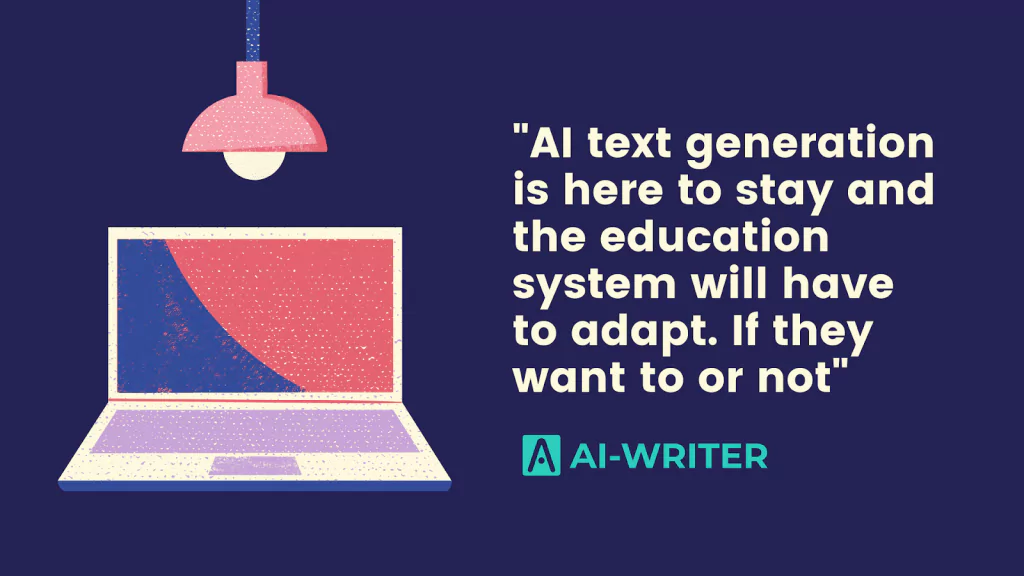
Another AI-writing service – Textero.ai – also predicts that the destiny of AI is carved in stone. Truly, these modern tools are outperforming the outdated ones and making strides in the direction of a new tech-boosted era in the academy.
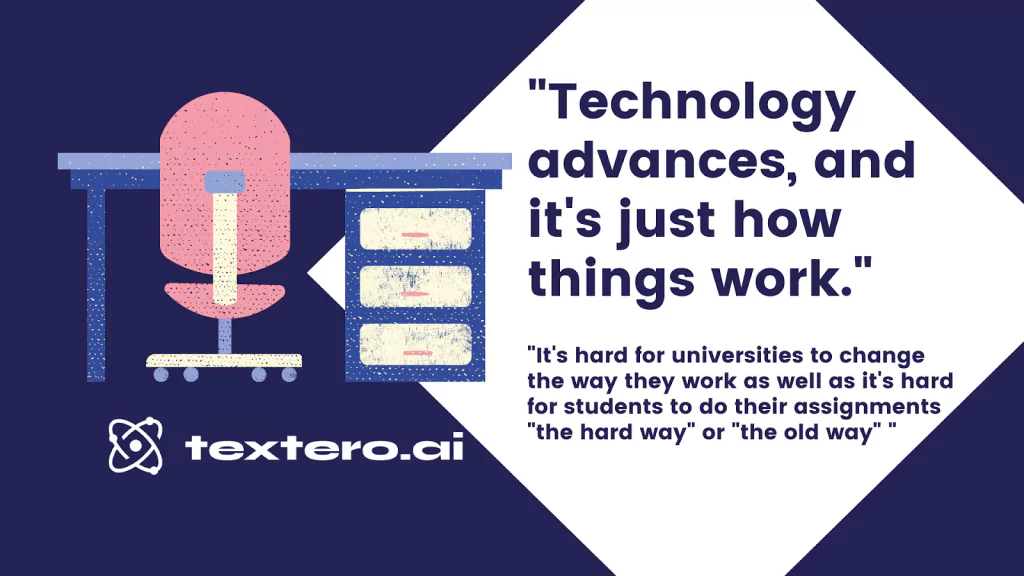
The Textero.ai team understands that the world is evolving and it is only natural to follow the emerging trends.
Like they said:
“Just a few decades ago, you needed to go to the library to find sources, references or even inspiration for your next work. Now you don’t even need to search for appropriate papers, AI can find them for you and will probably do it better.”
While it is easy to deal with assignments for students, it is getting harder for schools to keep the integrity policy afloat. Educators are on the other side of the schooling process. It is essential for them to know how AI tools work since they are making the final call during the assessment. Not only do students rely on AI writing tools daily, but with the proper and more individualized approach, they are likely to outsmart AI technology.
The first and simple way to work with AI-powered tools is to give a general prompt with basic instructions. A word of caution: all AI detectors are built to check predictable LLM-generated texts. However, if learners are smart enough to go the extra mile, they can dive into more detailed instructions with specified prompts. This approach is called an “AI brain teaser” since the intricate and specific prompts can set more straightforward and non-generic answers. The result – a higher probability of human text and lower changes of being flagged for using AI chatbots.
For now, this is all theory. It is time to see how it works in practice. The experts at PlagiarismCheck.org, a plagiarism checker service, state that academic integrity is being challenged. And it is true that many teachers are facing trouble defining assignments’ originality.
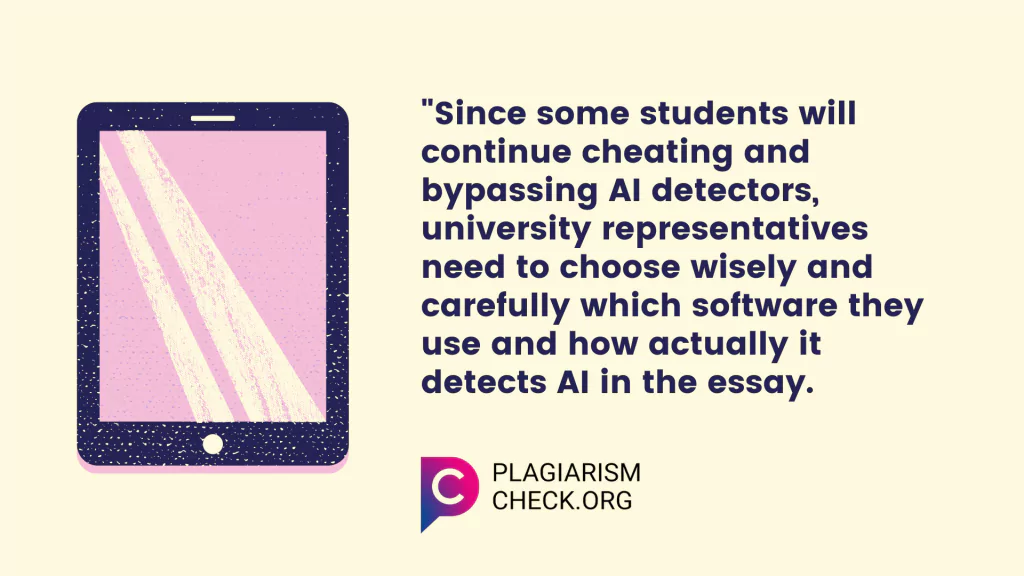
Curiously enough, many students, on their part, face a lot of challenges as well. In the academic environment, there are concerns from students who do not use AI-writing tools but keep receiving their essays flagged as AI-generated ones. The only thing that can save them is the fact that the teachers are familiar with their writing style and approach and do not question the result the AI detector shows them.
Again, this is an exception that does not happen with many. Hence, False Positives & Negatives impede the assessment process. This works the following way. Let’s say we have 4 students: Sarah, Ann, Pete, and Derek.
- Sarah has a lot of subjects at her uni. Once, she was in a rush and wanted to finish her assignment faster. She used an AI-writing tool. Her professor ran her essay through an AI detector and the result was positive – Sarah used AI -> True Positives.
- Pete, who is a single dad who works part-time and goes to college, tries his best and burns the midnight oil. He, personally, doesn’t prefer using AI-writing services. AI detectors confirm that he really does all his assignments on his own. -> True Negatives.
- Derek is a true Gen Z student who never misses out on a chance to try something new. He uses some of the most popular AI writing tools but he is not certain that they can help him 100%. He was aware that finals are tough but he made a conscientious choice not to rely on AI services. And when his professors started to check all written assignments in AI detectors they did not find any proof -> False Positives.
- Ann is a very active student who wants to take it all from her university experience. She volunteers, does internships and much more. Sometimes, she misses her deadlines because of the workload. So not to fail the subject, she uses AI tools from time to time. And more often than not, AI detectors show no confirmation that she used this technology -> False Negatives.
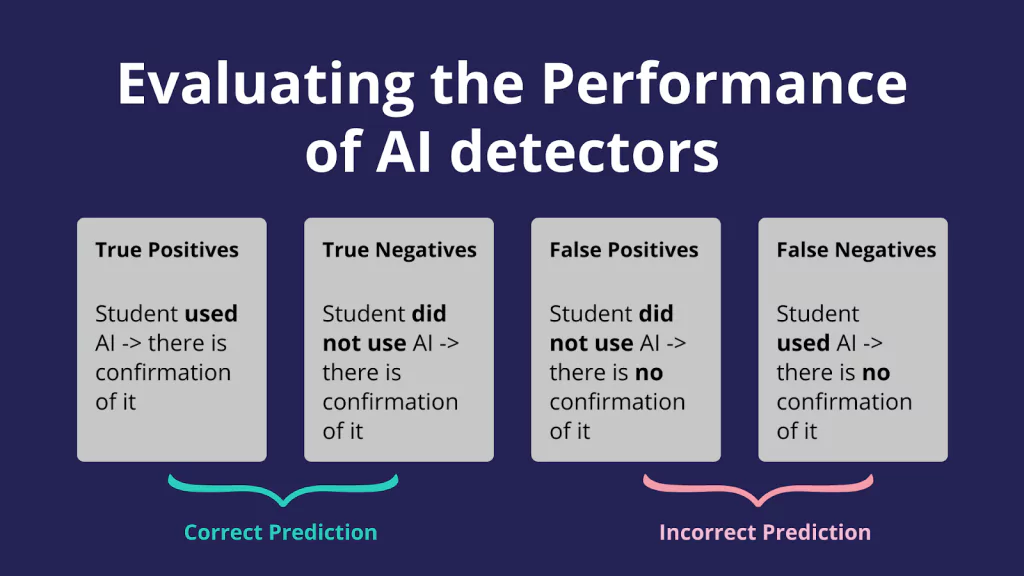
And while schools, colleges, and universities do understand the shift, it is hard to come to terms with it. If you cannot prevent it – cure it. Many academic establishments are actively using detecting tools to maintain a high level of transparency in the educational process. The burning question is: are AI detectors effective enough? Can they accurately distinguish human and machine writing? And most importantly, what needs to be done when detectors flag innocent students?
Should Universities Rely on AI Detection Tools?
The straightforward answer is – depending on what goal they are pursuing. If their goal is to simply prove that there are students who rely on AI technology, then it is the same as fighting windmills. A more effective approach would be to use AI writing tools and AI detectors and see how they influence the analytical thinking of students.
GPTZero, an AI-detecting tool, knows how to navigate the modern tides. This AI detector understands that technology is not perfect. Ironically enough, their team believes that humans should still be greatly involved in development and enhancement of it. Their point of view is that professors should show initiative. For instance, educators can ask students if they can produce artifacts of their writing process, whether be they drafts, revision histories, or brainstorming notes.
Since AI chatbots act by the command of humans who write definite cues to them, such a thorough approach is necessary.
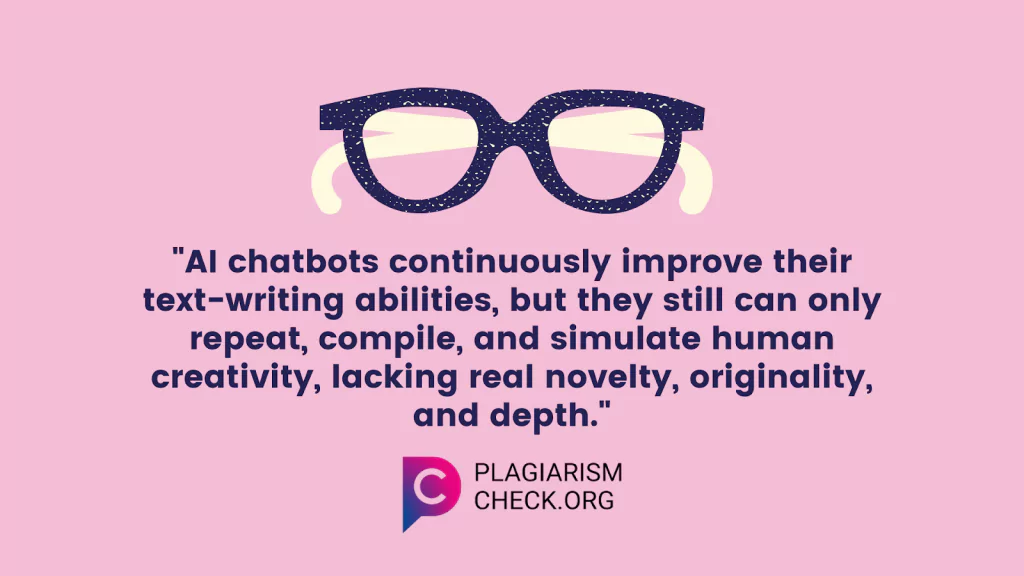
Coming from the AI-writing tool itself, The Good.AI:
“Currently, we are witnessing that AI chatbots are developing and improving. There is a lot to do in order for AI-writing tools to resemble human creativity”.
The Good.AI experts do highlight the importance of academic integrity. From their stance, it needs to be coming strictly from higher-education establishments. And it should not be just an initiative. On the contrary, educators need to sync their curriculum and programs with current trends and tendencies.
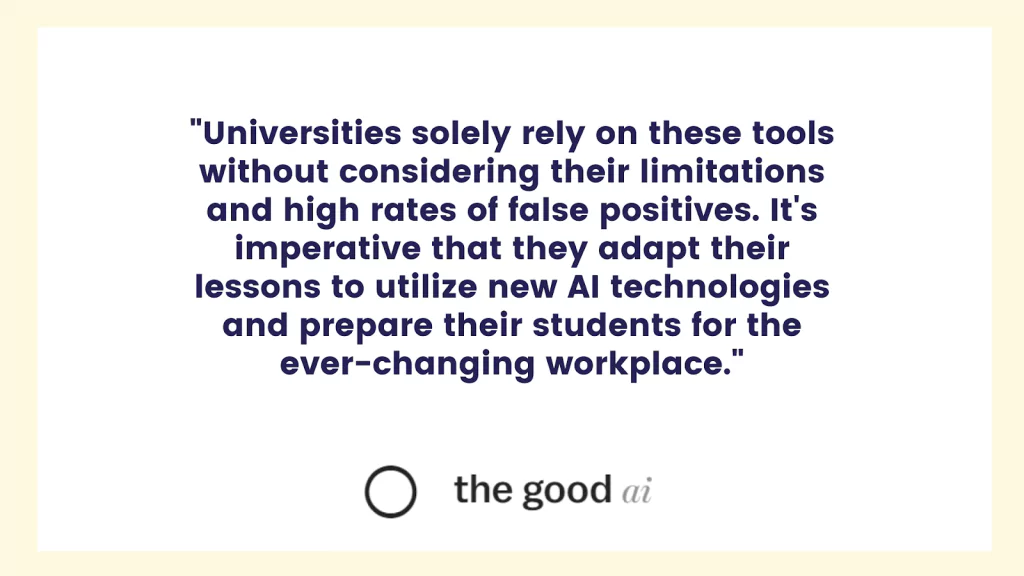
ZeroGPT, an AI-detector, seems to agree. But their experts think that besides just being in vogue with modern academic fads, education establishments have to learn more about these advanced tools.
ZeroGPT says:
“Educators have a mission – they need to help students prepare for the ever-changing workplace”.
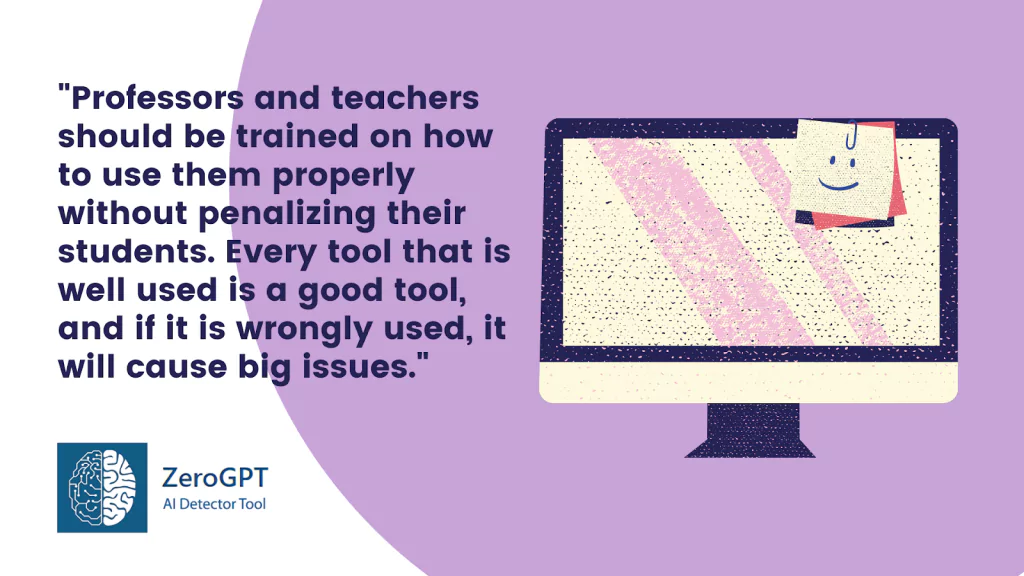
The main highlight again is that AI is just a modern tool. Many false positives can happen, and that is the main reason why these cutting-edge developments need to be used only for help rather than being an embodiment of full support. And universities need to stay impartial as always. While their main priority is to keep integrity, teaching students how to learn is more vital.
Coming from TinyWow, an AI writing tool, their experts are certain that it is hard right now to claim for 100% which essay is AI-generated and which is not. However, they provide a valid point regarding the approach to writing a paper. From their stance, if the essay is long and follows the basic structure, there are higher chances to receive some results after the detection. Nonetheless, the TinyWow team highlights that making any judgments now is like walking on thin ice.
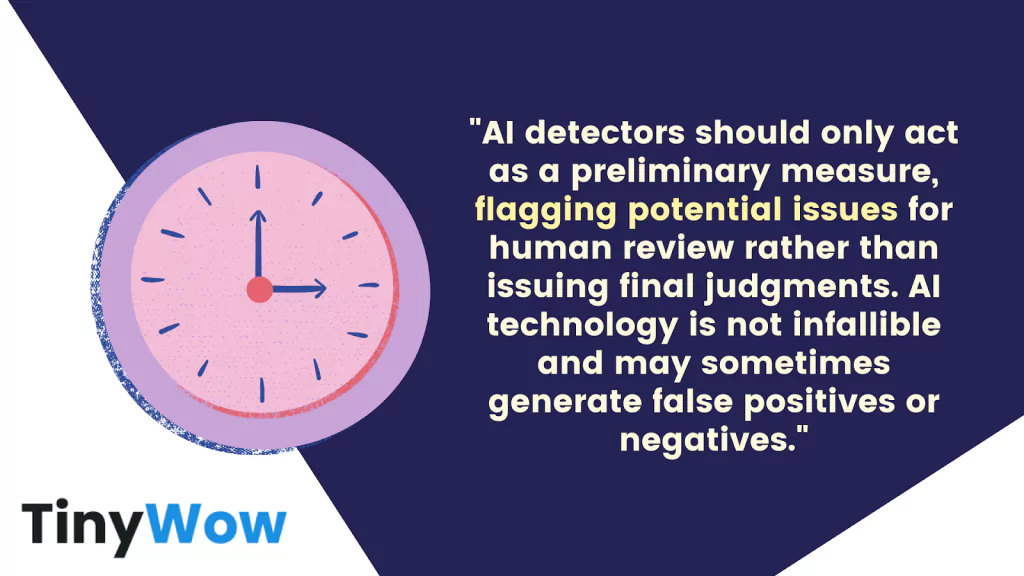
To back this strong opinion, the Passed.AI team, an AI-detector, is certain that while detectors are valid and can do good, there are certain moments when just considering using them is not enough. It may come across as a broken record, but Passed.AI also states that false positives are inevitable. They have built a free Chrome extension that allows teachers/editors to visualize the creation process. It takes the revision history of a Google document and helps someone visualize the entire creation process.
The Passed.AI experts claim that still a lot of work needs to be done to help make people aware of the AI detection accuracy of various tools teachers are relying on.
Seal the Deal with The Devil
Taking a leap of faith and skipping all stages of denial straight to the final one – acceptance – is a smart choice. Since students and educators are in the same boat they need to unite their forces to understand the core aspects of AI.
Surprisingly enough AI can contribute a lot in the educational environment if used properly. AI is a powerful routine task accelerator. Whether humans can outwit this advanced technology is a big question. But they can understand how it works to enhance the process by making it more seamless and engaging.
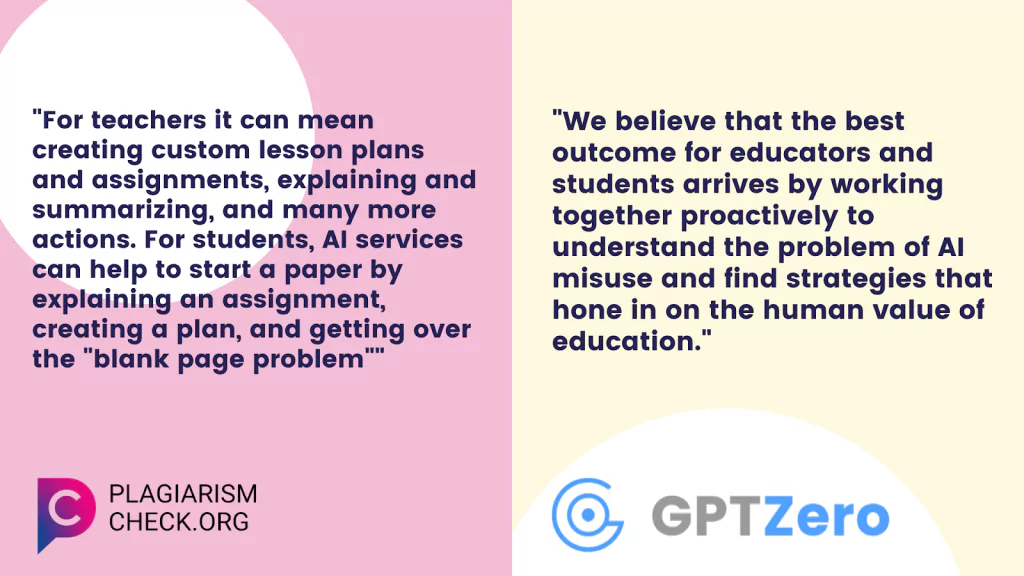
It seems that opponents – AI detectors and AI writing tools happen to share a common ground. Such services as The Good.AI, Passed.AI, and TinyWow agree that any modern tool can facilitate the learning process. AI has a good potential in adjusting programs to individual needs. Additionally, it can help with brainstorming and making lessons more fun and engaging. Dynamic sessions can become a part of the everyday agenda at school. These are two valid points on advanced learning methods. Moreover, AI services can provide that extra support to students who may be struggling with certain topics and are searching for assistance.
As always, AI tools fall into the gray spectrum and bring potential challenges with them to academia. As progressive as it may look, AI can shower learners with misinformation and non-valid facts. This is where teachers and professors can step in to fight this deception and show learners how to operate AI in the right way.
With this regard, the TinyWow team wanted to highlight that the use of AI can challenge privacy concerns since AI chatbots are always involved in collecting and analyzing sensitive data. Universities need to address these issues while integrating AI into their operations.
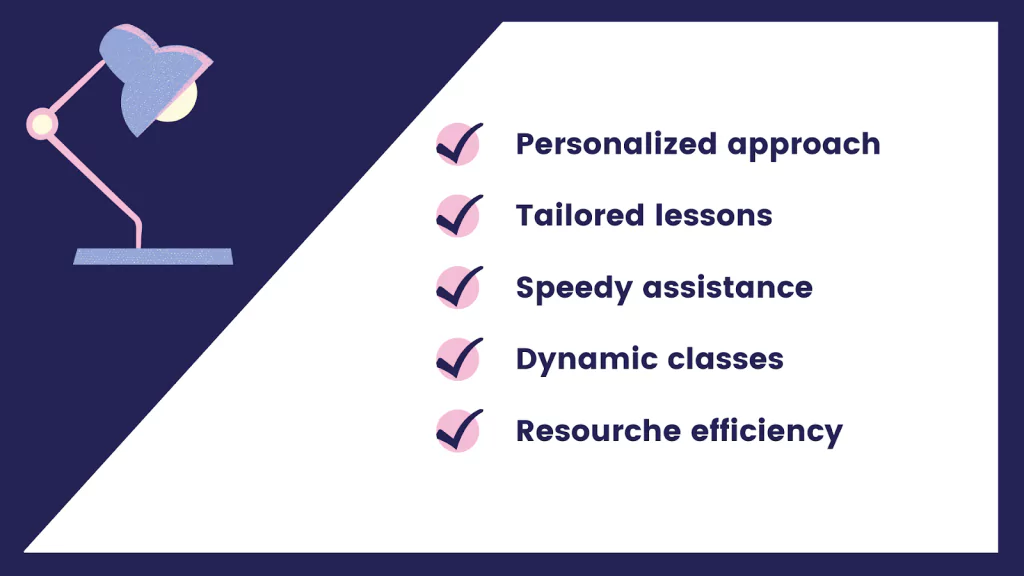
The silver lining is – AI technologies can have potential in education. Tailored learning experience, personalized tutoring approaches, and detection of misinformation. All of this is possible when AI is in professional hands and is taken with a pinch of salt.
Importance of Training Educators for AI Integration in Assessments
Teachers and professors should keep up with modern technology. Not only to be in trend but to understand how they can contribute to the teaching approaches with the help of modern initiatives. This concerns the assessment criteria as well.
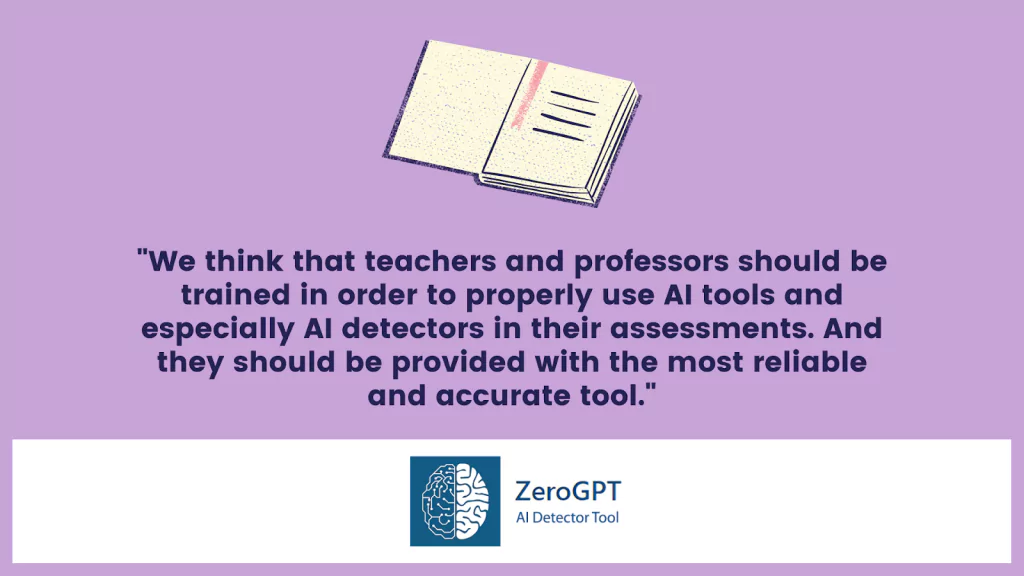
A valid initiative indeed. However, many educators ponder how to make it a reality. While others brainstorm, bounce off ideas, and start creating new policies, others are still mulling over what is the best way in this situation.
The rollout of AI tools has brought a lot of uncertainties to the education environment. All innovations bring their own correlations, but AI seems to bring a whole package. While it is still under development, no rigid regulations can be introduced. PlariarismCheck.org claims that the only solution left is to benefit from reliable AI detectors for now.
While this thought has a more upbeat tune, other AI detectors in the industry have a less positive scenario. For example, the Passed.AI team understands the severity of situations and does not expect teachers and professors to get the hang of it immediately. To put it this way, it is a work in progress. On their part, the detector hopes to simplify and automate the workflow for educators so that they can focus more on teaching. When it is done, The Good.AI experts believe that the mentoring of students will be more seamless. Moreover, teachers and professors can foster critical thinking in the classroom with the proper guidelines and regulations.
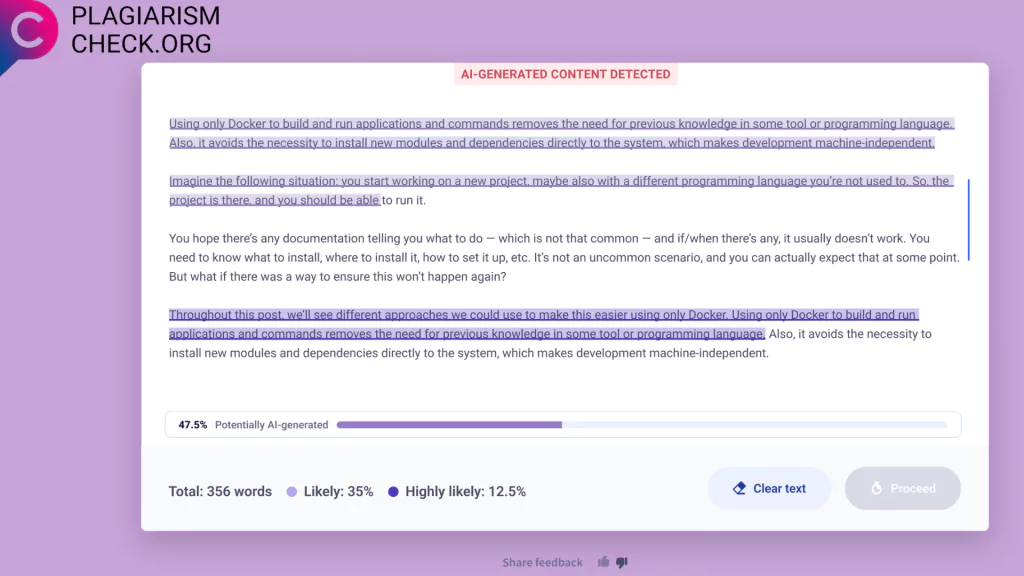
PlagiarismCheck.org states that it’s crucial to have proper training and understand the limitations of AI-powered tools and how to evaluate and interpret the reports, since such tools are not foolproof and can sometimes flag legitimate work as suspicious. Teachers can also use AI to benefit from this technology by improving productivity and supporting creativity in assignments.
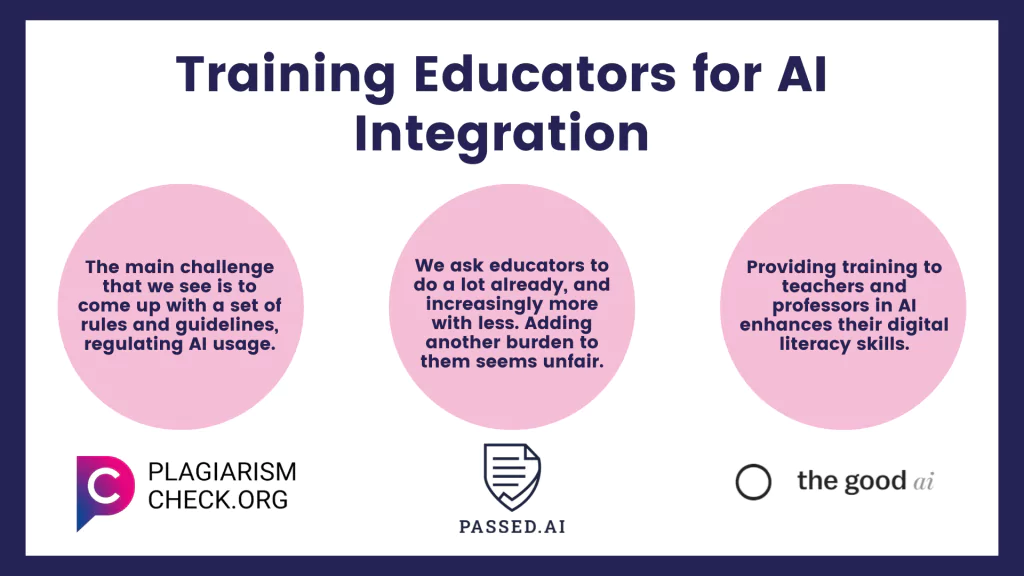
Unquestionably, to face the challenge of modern education, teachers, and professors need to be educated and trained to use AI for academic assessment. It can be done in various ways. Be it in the form of rules or guidelines on preventing AI misuse that can cause many potential biases. Or it can be in the form of training in digital literacy skills.
How to Regulate the Use of AI in Education?
History is cyclic And such a question has the same tone as one of the controversies over calculators in the classrooms. The middle ground should be to know how to regulate the use of AI in education.
Ignoring AI in education is not an option, claims Passed.AI’s experts. By doing so, teachers and professors can simply hinder students from adjusting to the world. But fully embracing is not an option as well. There is no need to go “Breaking Bad” about it. Conscientious and smart use of AI is welcome.
On the flip side, AI writing tools have another vital perspective to share. For instance, the TinyWow team feels like thinking about any regulations should not be on the agenda until the bigger concern is covered. It is the privacy and data security policies. The major fear is when AI tools may collect student data.
The Good.AI has a lot to contribute to the matter. Their experts are torn between the idea of implementing regulations. There is a fine line between creating something flexible and at the same time restricting. The Good.AI team fears that if done improperly, the inflexible regulations may fail to adequately address the educational environment’s complex and ever-changing dynamics.
While there is some grain of truth to it, other tools in the AI industry have another point of view. PlagiarsmCheck.org underpins that regulations can prevent the misuse of AI and cheating. They have high hopes that valid regulations can make the modern-day education system more ethical and effective. And their team has broad ideas of what such regulations can look like. It must include assessment guidelines, requirements for transparency in the use of AI, and policies for the ethical use of student data. The PlagiarismCheck.org team believes that if approved, these regulations need to be thoughtfully created to guarantee that they don’t repress innovation or limit the potential benefits of AI in education.
ZeroGPT supports all of the above-mentioned ideas:
“[We] hope this will be done soon.”
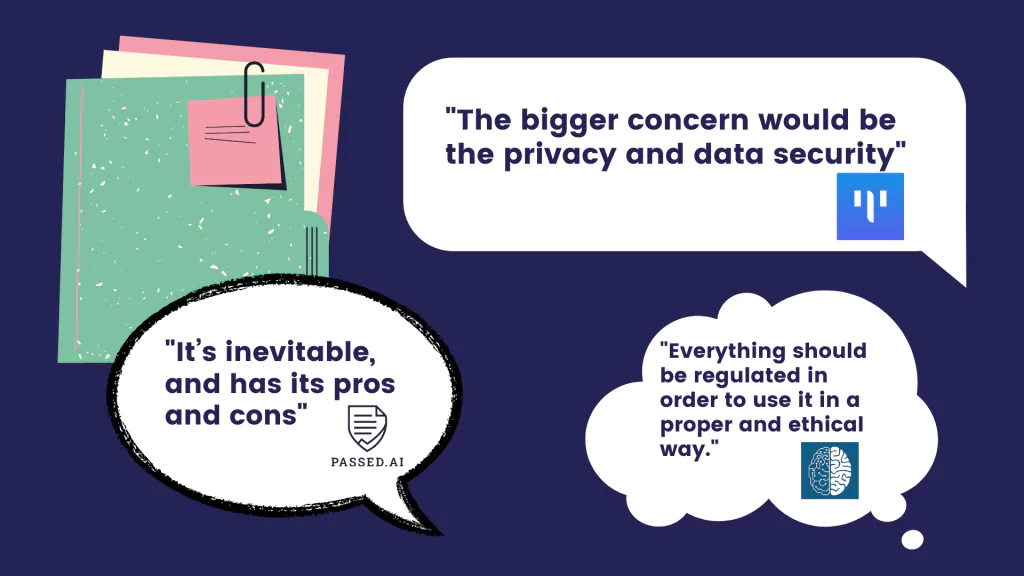
AI in education is a touching matter. While many experts in AI technology and detection do agree that knowing how to use AI is crucial, they underscore that it has to be done carefully. It goes without saying that students themselves have to use AI responsibly. To help them with that there needs to be proper training implemented for educators.
The Verdict
Progress, whether some might find it frightening or a blessing in disguise, is an inevitable part of our life. AI has opened a new chapter in the education field and does not seem to leave the radars of the academy. This new and shiny toy resembles the Rubik’s cube. It is complex and hard to understand. Both students and educators need to work together in one direction in order to take the most out of the AI services to keep education transparent and honest.
Follow us on Reddit for more insights and updates.

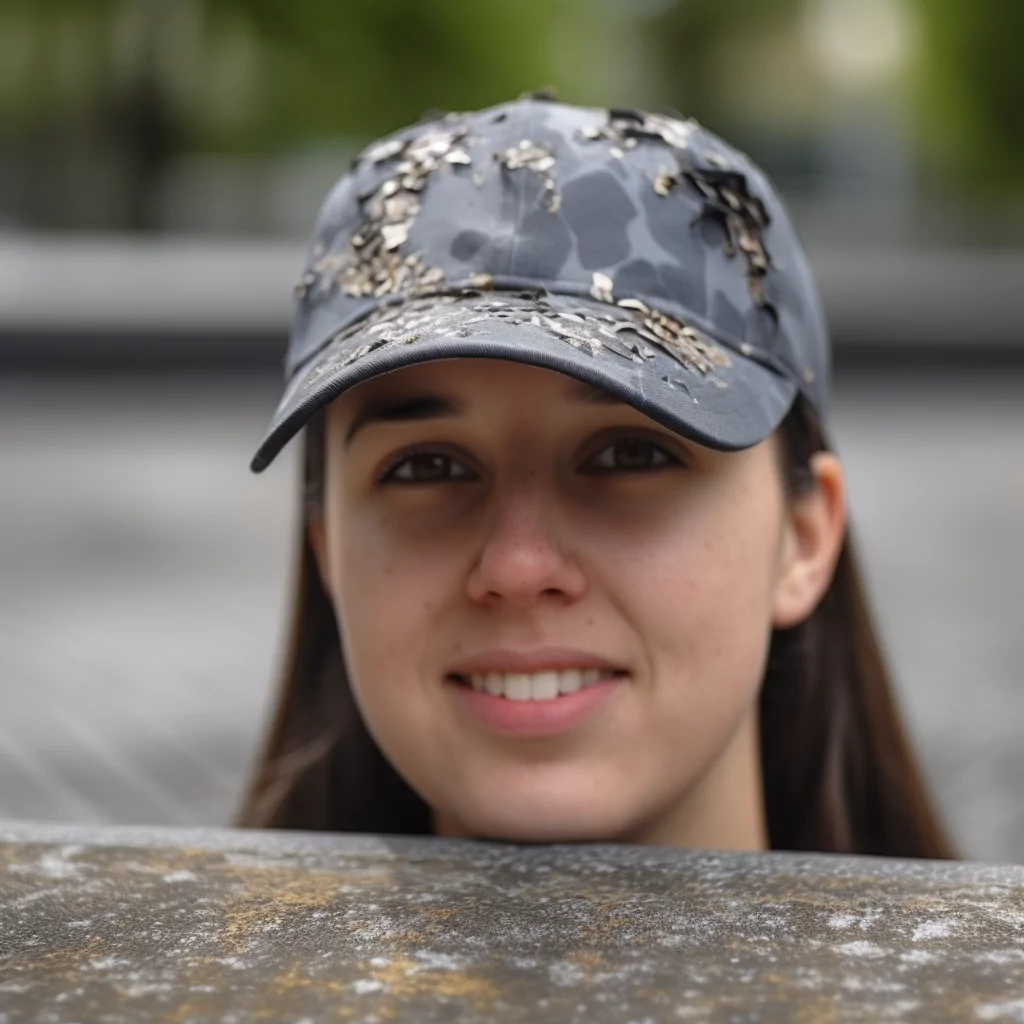
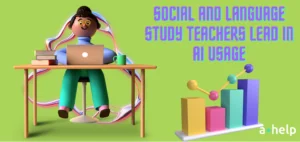
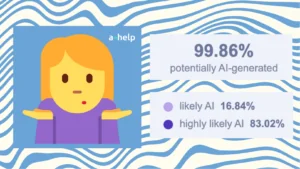
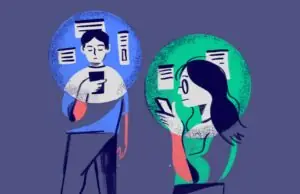
Comments (0)
Welcome to A*Help comments!
We’re all about debate and discussion at A*Help.
We value the diverse opinions of users, so you may find points of view that you don’t agree with. And that’s cool. However, there are certain things we’re not OK with: attempts to manipulate our data in any way, for example, or the posting of discriminative, offensive, hateful, or disparaging material.